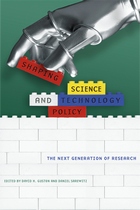

Contributors:
Maria Alberto, University of Utah
Mélanie Bourdaa, University of Bordeaux Montaigne
Meredith Dabek, Maynooth University
Simone Driessen, Erasmus University Rotterdam
Yektanurşin Duyan, Mardin Artuklu University
Dan Golding, Swinburne University of Technology
Bethan Jones, Aberdale, Wales (UK)
Siobhan Lyons, Sydney, New South Wales (Australia)
L. N. Rosales, University of Nebraska, Lincoln
Andrew Scahill, University of Colorado, Denver
Janelle Vermaak, Nelson Mandela University
Cynthia W. Walker, St. Peter’s University
Dawn Walls-Thumma, independent scholar
Neta Yodovich, University of Haifa

Even in this age of working mothers, the role of fathering is often overlooked. This book illuminates the realities of fathering by presenting the results of a unique empirical study conducted over four decades and covering four generations of fathers and children. Through case studies and data analysis, John Snarey demonstrates that men's care for their families reaps immense and long-lasting benefits—for themselves, for their offspring, and for future generations.
In striking contrast to research that considers fathers to be obscure or peripheral figures, Snarey reveals their position as central caregivers and characterizes their most effective nurturing behaviors. He examines fathers' involvement in three vital realms of their children's development: social-emotional, intellectual-academic, and physical-athletic. Looking specifically at fathers' relationships with their oldest children during the first two decades of their lives, Snarey addresses issues of fathering in both childhood and adolescence. He presents portraits of individual father-son and father-daughter relationships, and measures and defines the ways in which “good” fathers are constructively engaged in and supportive of children's growth. Snarey also focuses on the fathers themselves. Moving back in time, he explores how men's boyhood experiences with their own fathers affect their subsequent parenting styles. Then, cycling forward, he observes how various fathering experiences affect men at mid-life, in their marriages, and throughout their careers. His study also considers how the threat of infertility impacts fathers' generativity—their ability to care for the next generation.
Within the current wave of scholarly interest in fathering, this is the first comprehensive longitudinal study of the topic. It is firmly grounded in Erik H. Erikson's model of psychosocial generativity, and adds a significant dimension to Erikson's theory by successfully applying it to empirical research. Snarey makes a major contribution to male, child, family, and developmental psychology, and addresses issues of ongoing concern in the fields of sociology and education. How Fathers Care for the Next Generation offers hope that men can, indeed, rework their past and provide better fathering than they themselves received.


The incisive and innovative readings in Sexual Generations provide food for thought about how the final frontier can clarify pressing questions of our own space and time.

With scientific progress occurring at a breathtaking pace, science and technology policy has never been more important than it is today. Yet there is a very real lack of public discourse about policy-making, and government involvement in science remains shrouded in both mystery and misunderstanding. Who is making choices about technology policy, and who stands to win or lose from these choices? What criteria are being used to make decisions and why? Does government involvement help or hinder scientific research?
Shaping Science and Technology Policy brings together an exciting and diverse group of emerging scholars, both practitioners and academic experts, to investigate current issues in science and technology policy. Essays explore such topics as globalization, the shifting boundary between public and private, informed consent in human participation in scientific research, intellectual property and university science, and the distribution of the costs and benefits of research.
Contributors: Charlotte Augst, Grant Black, Mark Brown, Kevin Elliott, Patrick Feng, Pamela M. Franklin, Carolyn Gideon, Tené N. Hamilton, Brian A. Jackson, Shobita Parthasarathy, Jason W. Patton, A. Abigail Payne, Bhaven Sampat, Christian Sandvig, Sheryl Winston Smith, Michael Whong-Barr

Suburban Remix brings together experts in planning, urban design, real estate development, and urban policy to demonstrate how suburbs can use growing demand for urban living to renew their appeal as places to live, work, play, and invest. The case studies and analyses show how compact new urban places are already being created in suburbs to produce health, economic, and environmental benefits, and contribute to solving a growing equity crisis.
Above all, Suburban Remix shows that suburbs can evolve and thrive by investing in the methods and approaches used successfully in cities. Whether next-generation suburbs grow from historic village centers (Dublin, Ohio) or emerge de novo in communities with no historic center (Tysons, Virginia), the stage is set for a new chapter of development—suburbs whose proudest feature is not a new mall but a more human-scale feel and form.
READERS
Browse our collection.
PUBLISHERS
See BiblioVault's publisher services.
STUDENT SERVICES
Files for college accessibility offices.
UChicago Accessibility Resources
home | accessibility | search | about | contact us
BiblioVault ® 2001 - 2025
The University of Chicago Press









